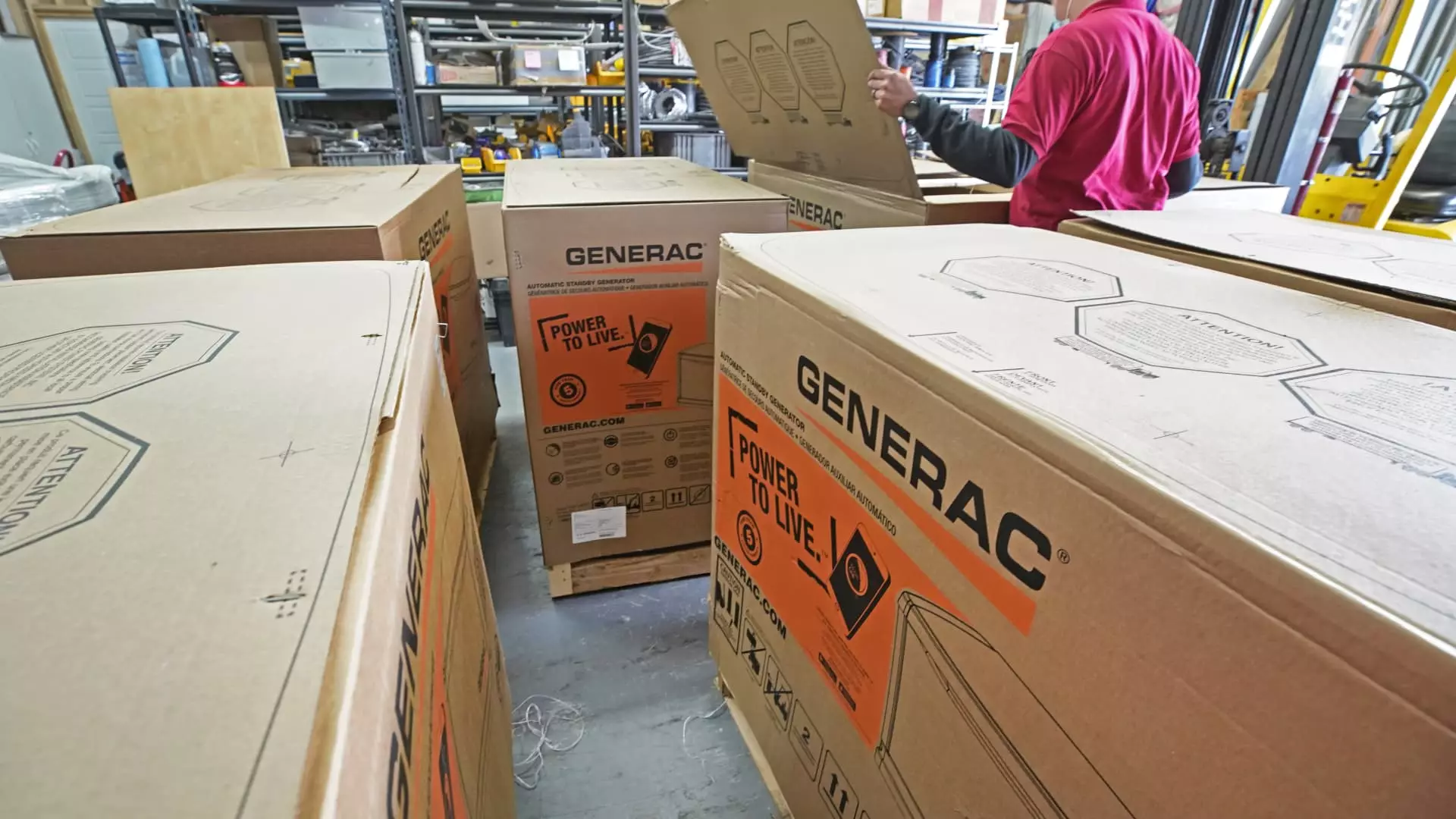As we grapple with erratic climate patterns and an infrastructure that’s barely keeping up, the recent surge in Generac’s stock calls for a closer examination of our priorities. This generator manufacturing titan has taken Wall Street by storm, delighting investors with a share price jump of nearly 12% in one week alone. While it’s easy to see this as a win for savvy investors amidst ongoing natural disasters like extreme heat and hurricanes, the broader implications of this trend deserve scrutiny.
The Reality of Climate Change
The ongoing hurricane season, compounded by oppressive heat waves, highlights the alarming trajectory of climate change. According to the National Weather Service, over 130 million people are currently under extreme heat advisories across the Mid-Atlantic, Ohio Valley, and Southeast. The reality is that climate change continues to manifest in ways that stress our already failing infrastructure. Generac’s stock surge doesn’t just signify a profitable investment but instead embodies the grim reality that our society is increasingly reliant on solutions that merely patch over systemic issues. Let’s be clear: the fact that citizens are now rushing to buy backup generators is not merely an opportunity for profit; it reflects a growing dependency on makeshift solutions for a society incapable of addressing the root causes of climate disruption.
Powering Profits Amidst Power Outages
Generac’s CEO, Aaron Jagdfeld, has voiced concerns regarding our power grid’s vulnerabilities, particularly as heavy storms become more common. Recent forecasts from the National Oceanic and Atmospheric Administration expect an active hurricane season with up to 19 named storms and conditions likely to deteriorate. Is it not disconcerting that corporate profits are directly rising alongside the misfortunes of the public? The revelation that the risk of power outages could leap 50% remains a chilling reminder that for every investor’s triumph, there’s a household praying to avoid the horrors of darkened days and sweltering nights.
Investment Versus Infrastructure
As we applaud the financial ascent of companies like Generac, questions should arise around our investment priorities. While private enterprises benefit from increasing demand for backup power solutions, public infrastructure remains overlooked and underfunded. Bank of America forecasts a staggering 2.5% compound annual growth rate in electrical load from 2024 to 2035, yet are we prepared for the consequences of such growth if our infrastructure crumbles under its weight?
Assuming that advancements in technology and backup systems will be enough to insulate us from reality can be a dangerous gamble. It stems from a myopic viewpoint that favors short-term financial gain over long-term sustainability. In the face of increasing power demands, shifting priorities toward infrastructure development should be paramount.
The Flawed Paradigm of Emergency Preparedness
The narrative of relying on generators like those produced by Generac after outages occur is flawed; it suggests that individual preparedness absolves us of the collective responsibility to enact meaningful changes. While it’s commendable that consumers are investing in alternative solutions, it raises an uncomfortable question: what is being done to fortify the grid itself? The expectation that individuals can solve collectively experienced problems enhances social inequity. The wealthier can afford backup generators, while economically disadvantaged communities continue to bear the brunt of climate impacts without any financial safety net.
Concerning Stock Market Karma
As the stock market rewards companies profiting from climate chaos, an unsettling irony unfolds. The success of firms like Generac rests on the misfortunes of those affected by climate-related disasters. Investors, while reveling in stock gains, should reflect on the moral implications of their investments. Our current industrial paradigm lauds profitability without a holistic understanding of social responsibility and what it means to live in a country increasingly besieged by natural calamities.
The power sector may show promising growth, as mentioned by analysts, but that optimism is built on shaky foundations. Enabling the profitability of utility and backup generator companies must confront the grim realities underpinning those profits. Without immediate efforts to strengthen our power infrastructure, we risk falling into a perilous cycle: an over-reliance on temporary fixes as climate change escalates.
Instead of lauding a temporary uptick in stock prices for companies benefitting from misfortunes, we should advocate for comprehensive strategies that ensure resilience against climate disruptions long-term. It’s high time we rethink what “investing” truly means.

